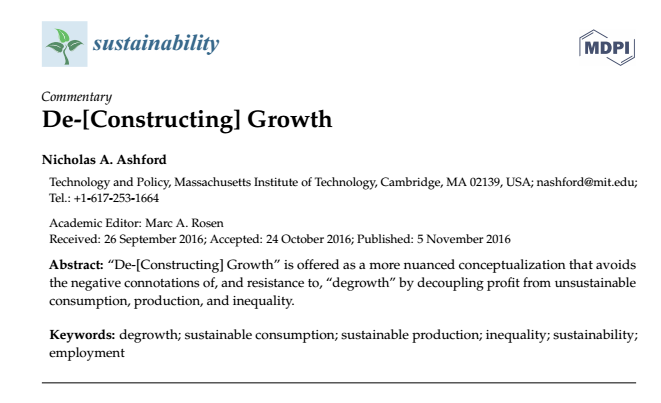I attended the 5th Degrowth Conference in Budapest in early September 2016 (http://budapest.degrowth.org/). Hundreds of people attended the conference and Budapest itself held a “Degrowth Week” which brought many more people into the city. In some ways, it was an important contrast to the 2nd Conference (held in Barcelona in 2010). The conference was populated by several distinct groups of people (see especially an analysis of a survey of participants in a previous conference [1]). For the purposes of this essay, I would contrast: (1) those for whom degrowth was a proxy for sustainable consumption, and to a lesser extent production (representing a US and European formal network known as (Sustainable Consumption Research and Action Initiative, SCORAI, http://www.scorai.net); (2) those for whom an emerging discussion of “sufficiency” as a societal norm took shape, as a result of activism promoted especially by the NGO Friends of the Earth [2]; and (3) those for whom anti-capitalism was central, seeing growth as the stabilizing influence and the root cause of sustainability challenges. At earlier conferences, and in writings, degrowth has been described as a “movement” rather than an ideology [3], and in many ways the Budapest conference represented variations on that theme.
Read more and join the SCORAI project on ResearchGate or download the paper here: [download id=”4375″]

